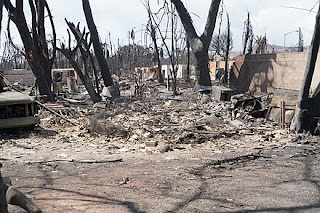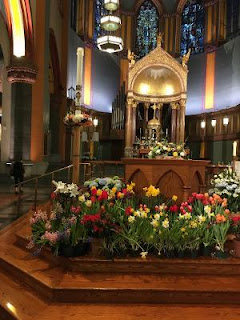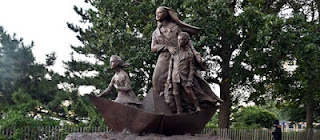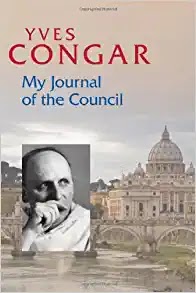Perhaps not in any age, but certainly not in our contemporary democratic media age (when everyone feels entitled to an opinion and has access to information and the means to express his or her opinion) should anyone be surprised by disagreements within religious communities, including disagreements between leaders and members of religious communities.
Still, an interesting contrast can be identified between Pope Francis’ pronouncements not he climate crisis and the views of many of American Catholics (and indeed other American Christians).
As everyone who cares at all about such matters knows, in 2015 Pope Francis issued a landmark Encyclical letter, Laudatory Si’, « On Care for Our Common Home, » which forcefully made the case for the need to respond – now – to the climate crisis. Last week, on the feast of Saint Francis of Assisi, quoted in the titles of both documents, the Pope followed up with an Apostolic Exhortation, Laudate Deum, which caused David Wallace-Wells, presumably an ally of the Pope on this issue, to describe Francis as « a climate alarmist, a techno-skeptic and a degrowther, sympathetic to activists, » among other things.
Laudate Deum is well worth reading not just for its comments on climate but for its larger socio-political critique. « Not every increase in power represents progress for humanity, » the Pope aptly reminds us, referencing « historical moments when our admiration at progress blinded us to the horror of its consequences. » In contrast to what he calls « a healthy ecology, » the Pope laments « the technocratic paradigm » that « has destroyed that healthy and harmonious relationship. » And he regrets how « global crises are being squandered when they could be occasions to bring about beneficial changes. » That is what he believes happened in the 2007-2008 financial crisis and then again in the Covid crisis. Regarding those squandered opportunities, he quotes his recent encyclical Fratelli Tutti: « the actual strategies developed worldwide in the wake of [those crises] fostered greater individualism, less integration and increased freedom for the truly powerful, who always fund a walk to escape unscathed. »
It seems hard to quarrel with much, maybe most, of the Pope’s diagnosis. In this regard, it is interesting that he begins his latest critique by invoking the analysis of the Bishops of the United States, who is 2019 « expressed very well this social meaning of our concern about climate change, which goes beyond a merely ecological approach, because ‘our care for one another and our care for the earth are intimately bound together. Climate change is one of the principal challenges facing society and the global community. The effects of climate change are borne by the most vulnerable people, whether at home or around the world. »
At home, however, recent studies suggest that such sentiments are not being heard or, if heard, have been largely rejected. According to a recent survey by the Public Religion Research Institute, only some 20% of U.S. white Catholics and 31% of Hispanic Catholics appear to agree that climate change is such a crisis. (For comparison sake, only 22% of white mainline Protestants, 19% of Black Protestants, and 16% of Hispanic Protestants agree that there is a climate crisis. American Jews lead with a mere 32%. Thus no American religious community can claim that even one-third of its members are fully on board on this issue.)
As with so much else in contemporary American religion, such views may be reflective of more encompassing political stances, which increasingly determine people’s religious perspectives, rather than the other way around.
To quote Pope Francis’ final words in Laudate Deum: « when human beings claim to take God’s place, they become their own worst enemies. »
Photo: Burned building remains after the fire in Lahaina, Hawaii.





